In Japanese, kono, sono, ano, dono この, その, あの, どの mean "this," "that," and "what." They're kosoado words very much like kore, sore, are, dore これ, それ, あれ, どれ, except they're used as adjectives instead of as nouns.
The words sono その and ano あの are also interjections. The word dono どの after someone's name is the honorific dono 殿.
Demonstrative Pronouns
Like all other kosoado pronouns, kono, sono, ano, dono refer to different things according to their prefix:
- kono X
この〇〇
This X. (close to me.)
My X. (possessive usage.) - sono X
その〇〇
That X. (close to you.)
This X. (close to you, on you, of you.)
Your X. (possessive usage.) - ano X
あの〇〇
That X. (far from us.)
Their X. (possessive usage.) - dono X
どの〇〇
What X?
Whose X? (possessive usage.)
The words kono, sono, ano, dono almost always come before a noun. You don't say just kono to say "this." You must say kono X to say "this X." Exceptionally, kono この is sometimes used alone in swearing, but that's an incomplete sentence. Some examples:
- Context: Midoriya Izuku 緑谷出久 realizes something about himself.
- kono taiyaki ga boku'...desu!!
このたい焼きが僕っ・・・です!!
This taiyaki... is me!!- taiyaki たい焼き
A sort of fish-shaped pancake.
- taiyaki たい焼き
- Kono Subarashii Sekai ni Shukufuku wo!
この素晴らしい世界に祝福を!
Blessings for This Wonderful World - sono kao wa doushita?
その顔はどうした?
What's up with that face?
What's up with [your] face?
Why are you making that face? - sono tame nara nandemo suru
そのためならなんでもする
If it's for that purpose [I'll] do anything.- Whatever it takes!
- sono kane wa doko kara dete-kita no ka?
その金はどこから出てきたのか?
That money, from where it came from?
From where did that money come from? - ano ken wa dou narimashita ka?
あの件はどうなりましたか?
That matter, how it became?
What became of that matter?
Grammatically, the noun after the pronoun doesn't need to be a single word. For example:
- kono keeki
このケーキ
This cake. - ichigo ga notteiru
いちごが乗っている
The strawberry is mounted on.
The strawberry is atop of. - {ichigo ga notteiru} keeki
イチゴが乗っているケーキ
A cake [on which] {a strawberry is mounted}.
A cake [with] {a strawberry on top}.- The noun "cake" is qualified by a relative clause.
- {ichigo no notteiru} keeki
イチゴの乗っているケーキ
- kono {ichigo no notteiru} keeki
このイチゴの乗っているケーキ
This cake [on which] {a strawberry is mounted}.
This cake [with] {a strawberry on top}.- Grammatically, "cake with a strawberry on top" is a noun phrase, which is why we can put kono before it.
Sometimes the nominalizer no の is used instead of a concrete noun. For example:
- kono ichigo no notteru no
このイチゴの のってるの
This one with a strawberry on top.- The first no の is the no の subject marker, the second is the nominalizer.
- notteru のってる
(stylized in hiragana because it's a child speaking...) - notteru 乗ってる
(contraction of...) - notteiru 乗っている
To be mounted on. To be on top of. (te-iru form of noru 乗る.)
- hoho---!
ほほーー!
(Santa-like laugh.)
その vs. あの
The difference between sono その and ano あの is that sono is something close to the listener, while ano is something far from both the listener and the speaker. For example:
- kono hako
この箱
This box. (here, in my hands.) - sono hako
その箱
That box. (in your hands.) - ano hako
あの箱
That box. (in that guy's hands over there.)
There's even a couple of phrases that illustrate this perfectly:
- kono yo
この世
"This world."- As in our world.
- The world of the living.
- kono yo ni sonzai shinai
この世に存在しない
It doesn't exist in this world. - kono yo kara kiero!
この世から消えろ!
Disappear from this world! (i.e. die!)
- ano yo
あの世
"That world."- As in, the world that's not mine or yours, not ours.
- The world of the dead. Afterlife. Hell, heaven, etc.
- ano yo ni okutte yaru
あの世に送ってやる
I'll send you to that world. (i.e. I'm gonna kill you.)
vs. これ, それ, あれ, どれ
The difference between kono, sono, ano, dono and kore, sore, are, dore is that one group is made out of adjectives, while the other group is made out of nouns.
When you say "this" in English, that's a noun. But when you say "this cake," then "this" is an adjective, and "cake" is the noun. In Japanese, there are different words for these two this's: kore and kono.
- kore ga hoshii
これが欲しい
This is wanted.
I want this. - kono keeki ga hoshii
このケーキが欲しい
This cake is wanted.
I want this cake.
Dislocation
Sometimes, kono, sono, ano appear at the end of a sentence, after the predicate that would normally come after them. This is called a right-dislocation, and it's particularly common in questions and surprised responses, in which case it's called emotive right-dislocation.
Toward People
Unlike kore, sore, are, the words kono, sono, ano can be used toward people without disrespecting them, so long as they don't qualify a disrespectful noun.
For example, the noun hito 人, "person," is a noun that's often used with the pronouns.
- Context: the speaker is walking around when all of sudden this girl shows up and...
- chotto okane kashite kurenai?
ちょっとお金貸してくれない?
Won't [you] lend [me] a little money? - nandesuka kono hito!?
なんですかこの人!?
What's up with this person!?
What's up with this [girl]!? - She just asked money from a complete stranger!
Another noun is ko 子, which means literally "child," but can be used like hito 人 to refer to other people. There's a dozen peculiarities about this word, see how ko 子 works for details.
- Context: an old woman gives advice to an adult woman.
- jouchan!
嬢ちゃん!
[Hey]!- jouchan 嬢ちゃん
ojouchan お嬢ちゃん
Refers to a young girl. (younger than the speaker, at least.)
- jouchan 嬢ちゃん
- anta mo
chotto wa
ano ko wo
minarai na.
あんたもちょっとはあの子を見習いな。
You [should] learn a little more [from] that [boy].
Emphasis
The words kono, sono, ano can be used to add emphasis to the noun if the noun is already unique.
That is, normally, when you have two things you can call by the same word, like two "cars," you must say "this car" or "that car" in order to specify which car you're talking about.
But sometimes you have a word that can only refer to one thing. For example, say you're talking about the prince. Since it's the prince, not a prince, we can infer there's only one prince: the prince. Adding "this" or "that" before it is redundant: there's no "this prince" or "that prince," it's only one prince.
In Japanese, doing this would add emphasis to the word:
- ano ouji-sama ga sonna koto wo?!
あの王子様がそんなことを?!
THAT prince [did] [such] thing?!- That one? The one that would never do such thing, did it?
- I can't believe it! Outrageous, just outrageous, I dare say!
This is most notably seen in phrases like kono ore この俺, "this me."
- kono ore ga itteiru
この俺が言っている
THIS me is saying it.- Not anybody else: THIS me.
- Are you doubting MY word?
- Are you implying that I am lying?
Which's mostly used by characters who are very full of themselves.
- mattaku
全く
[Good grief.] - gesewa na gumin-domo
全く下世話な愚民共
[What a lot of prattling fools.]- gesewa na 下世話な
[Someone] who chit-chats, prattles. - gumin 愚民
Foolish people.
- gesewa na 下世話な
- kono watashi wo dare dato omotteru no?
この私を誰だと思ってるの?
Who do [they] think this me is?
- Who do they think I am?
It doesn't need to be used with a personal pronoun. Sometimes it's used with the person's own name:
Swearing
Similarly, the word kono この can be used when swearing, in which case "this" ends up becoming "you" most of the time. For example:
- ii kagen ni shi-yagare,
いい加減にしやがれ、- [That's enough],
- [Stop that],
- [Cut it off],
- kono yarou!!!
この野郎!!!
[You bastard]!!!
Sometimes kono alone already implies wrath.
- Context: Zatch Bell ガッシュ・ベル did something he shouldn't have, enraging Takamine Kiyomaro 高嶺清麿.
- shikata... naku...
仕方・・・なく・・・- [It couldn't be helped.]
- [There was no other way.] (more literally)
- ko......no......
こ・・・・・・の・・・・・・
- Th......is......
- [You...... little......]
- nanda nanda!?
何だ何だ!?
What is it what is it!? - zawa zawa
ザワザワ
*commotion*
Using Dono どの
The pronoun dono どの can be used to ask "what" or "which" of a thing, but it's not as often used as one would expect, because there are reasons to use other pronouns instead of it.
For starters, dono is an adjective. It must come before a noun. So, obviously, you need to say the noun, too, besides saying dono. In a lot of cases, that noun can already be inferred from context, which makes using "dono noun" needlessly explicit.
For example, if you're talking about flowers, you don't say "which flower do you want?" Because you're already talking about the flowers. You'd say just "which one do you want?" as you point to the flowers you can see with your own eyes. Or even "which do you want?"
Similarly, there are many cases docchi, dore, and even nani are used instead of dono.
Besides that, take a phrase like this:
- dono manga ga suki desu ka?
どの漫画が好きですか?
Which manga do you like?
This is a very good question. Except that the following question often makes more sense:
- donna manga ga suki desu ka?
どんな漫画が好きですか?
Which kind of manga do you like?
It can be the difference between getting "Naruto" as the answer and getting "manga about the feudal Japanese culture" as the answer.
Similarly:
- dono pokemon wo sodatereba ii no?
どのポケモンを育てればいいの?
Which pokemon should [I] raise? (tame, train, level up, etc.) - tsugi wa dono anime wo miru ka na?
次はどのアニメを見るかな?
Next which anime [I'll] watch, [I wonder]?
The only one a bit more complicated is a phrase like this:
- dono you na goyouken deshouka?
どのようなご用件でしょうか?
What is the matter?
What brings you here?
That's because you よう is a light noun. The word youken 用件 means "matter." So the phrase is more or less "which kind of matter" do you want to discuss.
One valid answer, grammatically, would be "this kind of matter," kono you na youken このような用件, but nobody will actually say that. Instead, they'll just explain the matter: "oh, I want to discuss X with you."
Possessive Usage
Sometimes, kono, sono, ano, dono can express possessive aspects similar to those of no-adjectives.
This Thing of You
When possessive, the pronouns translate to something like:
- This thing of me, on me, etc.
- This thing of you, on you, etc.
- This thing of them, on them, etc.
- This thing of whom, on whom, etc.
The simplest to understand case of this is with kakkou 格好, "appearance."
- kono kakkou
この格好
This appearance. (literally.)
- Often means:
- watashi no kakkou
私の格好
My appearance. How I look.
- sono kakkou
その格好
That appearance. (literally.)- Often means:
- anata no kakkou
あなたの格好
Your appearance. How you look.
- ano kakkou
あの格好
That appearance. (literally.)- Often means:
- kare no kakkou
彼の格好
His appearance. How he looks.
The same usage can be observed in phrases like:
- dono kuchi ga iu
どの口が言う
What mouth says [it]. (wrong.)
Whose mouth says [it]. (correct.)
Look who's talking.- Expression used when someone accuses someone else of something they're also guilty of, e.g. the laziest character in a series calling another character lazy will get this response as tsukkomi ツッコミ.
There are cases it's not possible to tell if sono means "your thing," or "this thing close to you," "that thing." For example:
- Context: Aurora Suya Rhys Kaymin, オーロラ・栖夜・リース・カイミーン, who loves to sleep, stares at the feathers of Harpy, ハーピィ, and says something abominable.
- sore...... sono tsubasa......
それ・・・・・・その翼・・・・・・
That...... those wings / your wings...... - toreru?
取れる?
Can [one] take them [off]?
Are they removable?- Potential verb derived from toru 取る, "to take."
- e...... toremasen...
え・・・・・・取れません・・・・・・
Eh...... [no], [they] aren't.- toremasen - negative form of toremasu 取れます, polite form of toreru.
- Context: Kitahara Iori 北原伊織 is talking with someone that says something that could be misinterpreted badly.
- choi matta
ちょい待った
Wait a bit. - sono serifu tte {hata kara miru} to suggee hanzai-shuu ga...
そのセリフって傍から見るとすっげぇ犯罪臭が・・・
That line / your line, if {seen by a third-person}, [it] [has] an incredibly criminal smell. (literally.)
If someone hears what you said without context, they'll think it's a crime.
- serifu 台詞 - a line, in the sense of dialogue, something that someone says, or said.
- hata kara miru
傍から見る
To see from the sidelines, in the sense of how an onlooker interprets a situation they aren't involved in, without full context. - suggee - same as sugoi すごい, with changes in pronunciation.
- X-shuu
〇〇臭
[To have] an X smell. To reek of X. To appear to be X, such that other people can tell it's X from how it looks like.
- pon'
ポンッ
*tap* - ......
- omawarisan
お巡りさん
Police offer. (the sort that patrols.) - junkai suru
巡回する
To go around [a place]. To patrol. To tour.
- omawarisan
Of The Aforementioned
In some cases, sono can translate to "of the aforementioned."
Presumably, this happens because sore それ can mean "that" as in something aforementioned, so sono その, which exchanges the ~re ~れ morpheme by a ~no ~の morpheme that's sometimes possessive ends up meaning "of the aforementioned."
As always, ano あの feels more distant than sono その when referring to an aforementioned something.
With Family Members
Sometimes, sono is used to say someone is a family member related to an aforementioned someone else. For example:
- Context: a character sitting in agura あぐら position introduces himself, as does his wife.
- washi wa San no chichioya de Seto-uchi-gyorui-rengou Seto-gumi Kumi-chou "Seto Gousaburou" ja
儂は燦の父親で瀬戸内魚類連合瀬戸組 組長 『瀬戸豪三郎』じゃ
I'm Sun's father and Seto's Inner Fish-kind Alliance, Seto Group's Boss, "Seto Gousaburou."- ja じゃ - same as da だ copula, used by characters that sound old.
- 『』 - quotation marks.
- dosu
ドス
*thud* - sono tsuma "Seto Ren"
その妻『瀬戸蓮』!
That's wife, "Seto Ren"! (literally.)
- sono hito no tsuma
その人の妻
The aforementioned person's wife.
- sono hito no tsuma
With Time
When the words kono, sono, ano come after nouns for time, they end up referring to a time pertaining to some event.
この日, その日, あの日
- hi
日
Day. - kono hi
この日
This day.- Not necessarily "today." It can be a previous day mentioned by the speaker.
- kono hi wo wasurenai
この日を忘れない
[I] won't forget this day. - kyou
今日
Today.
- sono hi
その日
That day. (in which something occurred.) - ano hi
あの日
That day. (in which something occurred.)
The phrase sono hi can refer to a "day," hi, that the listener mentioned: "oh, and on that day (you mentioned), was it raining?"
Both sono hi and ano hi can be used to talk about past days, but ano hi feels more distant, more in the past, than sono hi.
These same differences apply to other words of time. For example:
- asa
朝
Morning. - kono asa
この朝
This morning.- In English, "this morning" is sometimes used to refer to today's morning. In Japanese, it's literally "this" morning. It can be a morning mentioned by the speaker previously, or it can be the morning that's occurring right now.
- kesa
今朝
Today's morning.
- sono asa
その朝
That morning. (in which something occurred.)- This can be translated as in "the morning" when telling a story.
- E.g. I left the door open. In the morning (sono asa), all my stuff was gone!
- Here, sono asa refers to the morning after: "I left the door open."
- ano asa
あの朝
That morning. (in the past.) - yoru
夜
Night. - kono yoru
この夜
This night. - sono yoru
その夜
That night. - ano yoru
その夜
That night.
この前, その前, あの前
The words kono, sono, ano can qualify mae 前, "before," to talk about what happened before something.
- kono mae
この前
This before.
Before this.- The other day, something happened.
- sono mae
その前
That before.
Before that.- Doing that is important, but before that, we have to do something else first.
- Before that happened...
- ano mae
あの前
That before.
Before that.- Before that thing which happened in the past happened...
To elaborate:
- kono mae tenkou shite-kita
この前転校してきた
Before this, [he] transferred schools [to here].- tenkou suru
転校する
To change schools. - shite-kuru
してくる
To come doing something. (e.g. to come here by transferring schools.)
- tenkou suru
- sono mae ni kakunin sasete
その前に確認させて
Before that, let me confirm. - sono mae ni junbi shiyou
その前に準備しよう
Before that, let's prepare.
この後, その後, あの後
When the words kono, sono, ano qualify ato 後, "after," it works the same way:
- kono ato
この後
After this. - sono ato
その後
After that. - ano ato
あの後
After that.
私がその一人
Sometimes, no-adjectives can be used with numbers to create partitives. For example:
- ni-bun no ichi
二分の一
One of two parts. One half. - touzokudan no hitori
盗賊団の一人
One person of the band of thieves.
One of the band of thieves.
This can also happen with sono その.
- watashi ga sono hitori
私がその一人
I'm that one person.
I'm one person of the aforementioned group. I'm one of them.
Another example:
- kore ga sono ichibu
これがその一部
This is that one part.
This is one part of the aforementioned thing.
- ~bun is a part in mathematical fractions, ~bu is for parts that compose things.
- soshiki no ichibu suginai
組織の一部に過ぎない
Doesn't exceed one part of the organization.
Is nothing but one part of the organization. (you thought you defeated the evil organization just by defeating this one small part of it? Haha!)
その1, その2, その3
The word sono その can also come directly behind a number like ichi, ni, san 一, 二, 三, to refer to the first, second, third, etc. of something.
- sono ichi
その一 (or その1)
The number one of that.
The first one of that.
Its first. - sono ni
その二 (or その2)
The number two of that.
The second one of that.
Its second. - sono san
その三 (or その3)
The number three of that.
The third one of that.
Its third.
This could be, for example, iterating the rules of an agreement, competition, regulation, contract, or so on. The first of the student council's rules... the second of the student council's rules... etc.
- In JoJo, some chapters are parts of larger arcs. For example:
- taiyou sono ichi
太陽その①
The Sun: the chapter number one of that.
The Sun: its first.
The Sun: Part 1.
Kanji
Although the pronouns kono, sono, ano, dono are normally written with hiragana, they do have kanji, so, in some rare cases, you may find them actually written with kanji:
- kono 此の
- sono 其の
- ano 彼の
- dono 何の
One reason they aren't written with kanji is that ano 彼の would be spelled the same way as kare no 彼の, "his." And dono 何の the same way as nan'no 何の. That would be too confusing, so people don't spell them with kanji.
Interjections
The words sono その and ano あの can also be used as interjections. The interjection ano あの is used when starting a conversation with someone, a way to ask "can I have your attention?" Just like "excuse me" in English.
- ano, sumimasen, dareka imasu ka?
あの、すみません、誰かいますか?
Hello? Excuse me, is anybody there?
- doushita no?
どうしたの?
[What happened]? - Chiyo-chan
ちよちゃん
(character name.) - a ano' watashi
konpyuutaa tte zenzen
sawatta koto nakute
あ あのっ 私 コンピューターって全然 触ったことなくてっ
[Y... you see,] I've never touched a computer.- ~koto nai ~ことない
To have never done [something].
- ~koto nai ~ことない
The interjection sono その is used when fumbling: when you're trying, you know, like... uh.... I mean, sono... when you're having trouble coming up with the words.
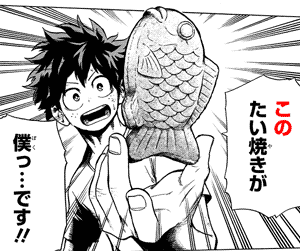
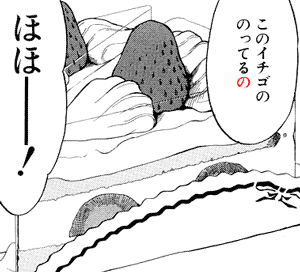
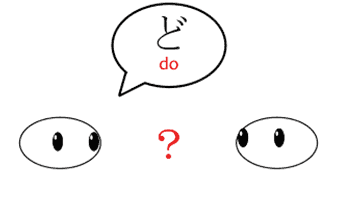
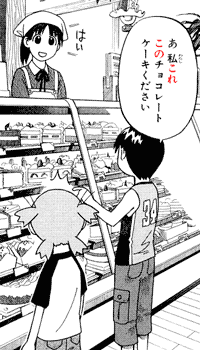
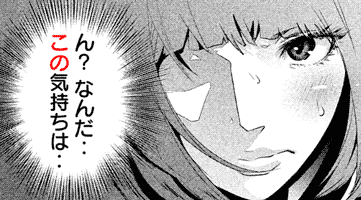
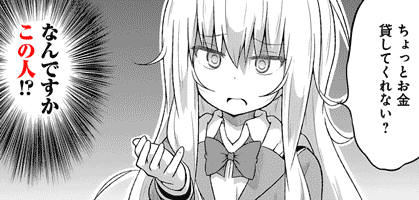
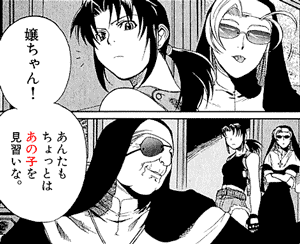
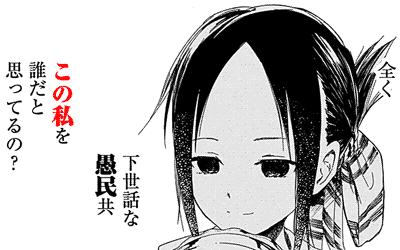
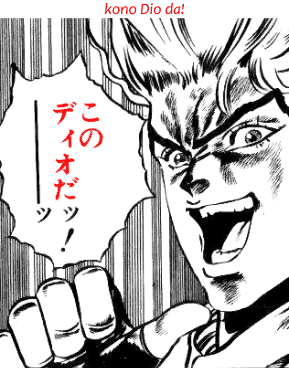
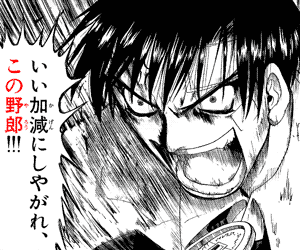
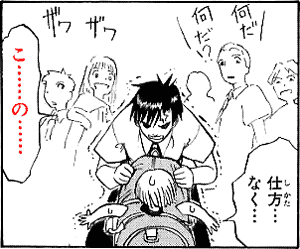
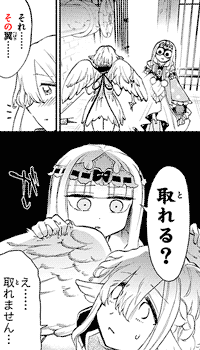
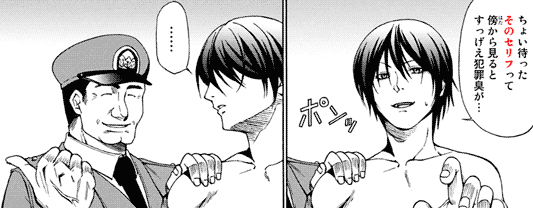
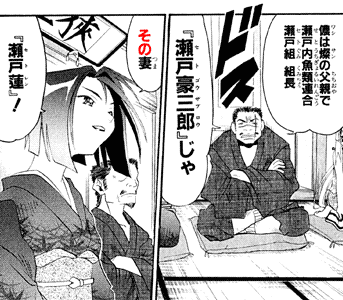
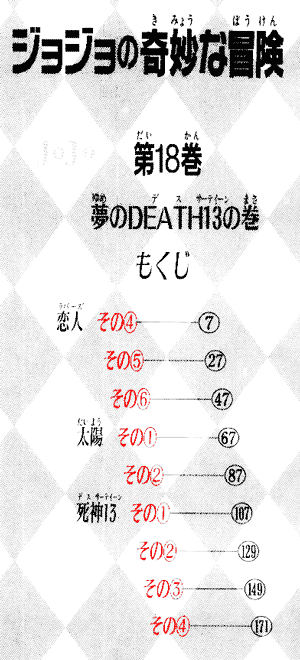
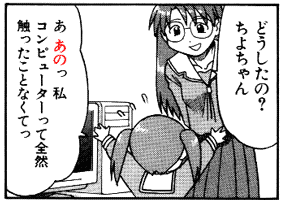
What does it mean when someone uses
ReplyDelete"Kono Ore" in a sentence?
Literally "this me." It's a way of saying, often dramatically in anime, that something unfitting happened to THIS me. Like, "THIS me lose a fight?!" as in, this monstrously-strong-me-who-has-a-history-of-never-losing-in-fights-since-elementary-school lose a fight?!
DeleteOther examples include: forgetting stuff, mistaking one thing for another, blunders, etc. Though even for something like "THIS me-who-hates-romance fall in love?!" also works.